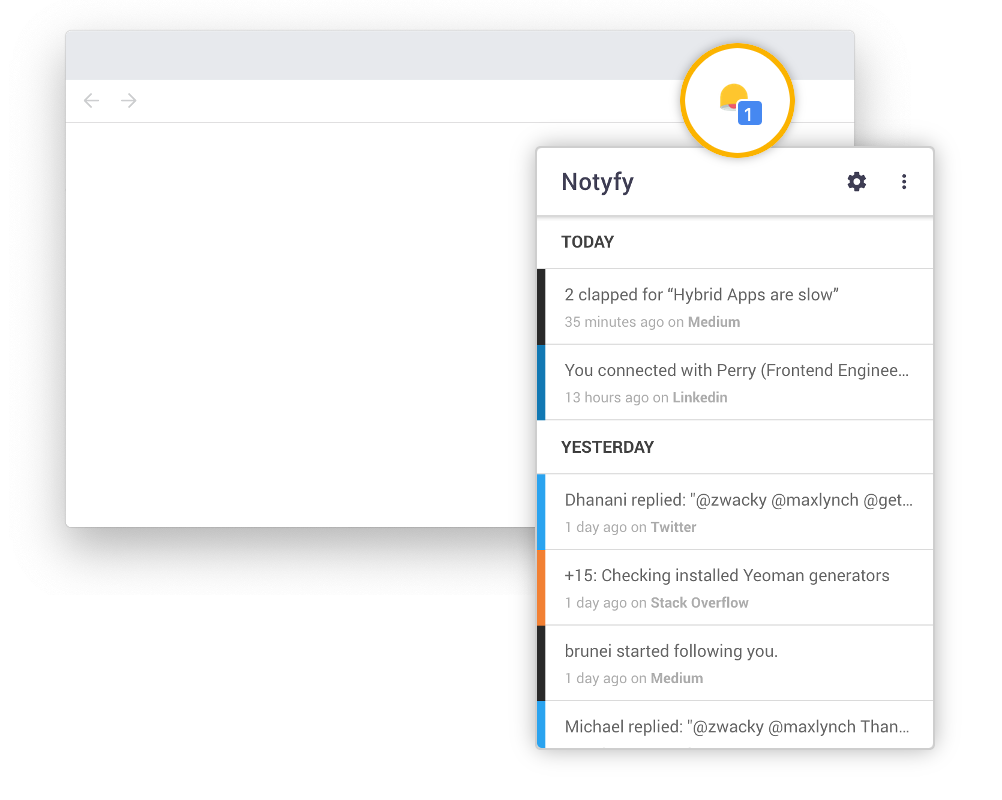


All your notifications across your platforms show up well-arranged in one place. Clicking on the notification will guide you directly to the notification's platform and its content.
Sensitive data like passwords are never read or stored. Notyfy sees which of the available platforms you're logged in and gets the notifications from them.
Notyfy uses highly optimized checks and saves tons of bandwidth; for instance that means for Facebook it only takes 0,002% of the size of the manual Facebook site check (Notyfy: 0.7kb to 58kb, Browsers: ~25mb).
| Count | List | Link out | Auto Login | Size | ||
|---|---|---|---|---|---|---|
|
|
|
|
|
|
34.8 kb | |
|
|
|
|
|
|
6 kb | |
|
|
|
|
|
|
34.2 kb | |
|
|
Gmail |
|
|
|
|
0.7 kb |
|
|
Medium |
|
|
|
|
9.5 kb |
|
|
StackOverflow |
|
|
|
|
17.2 kb |
|
|
Quora |
|
|
|
|
40.9 kb |
|
|
|
|
|
|
37.2 kb | |
|
|
GitHub |
|
|
|
|
30+ kb |
|
|
Product Hunt |
|
|
|
|
15.2 kb |
Notyfy will periodically check for notifications of platforms that you are logged in to. Since this request is coming from the Chrome Extension through your browser, the requests will be identified as you and is able to check your notifications on your platforms.
The requests are super lightweight (from 0.7kb to 58kb) compared to, for instance, the ~25 mb Facebook page load.
Nothing is stored on servers. The only thing being locally stored for caching purposes are your notifications for a faster loading time.
No, Notyfy only reads the data of the platforms it supports. There is no permission given to read all your site data.